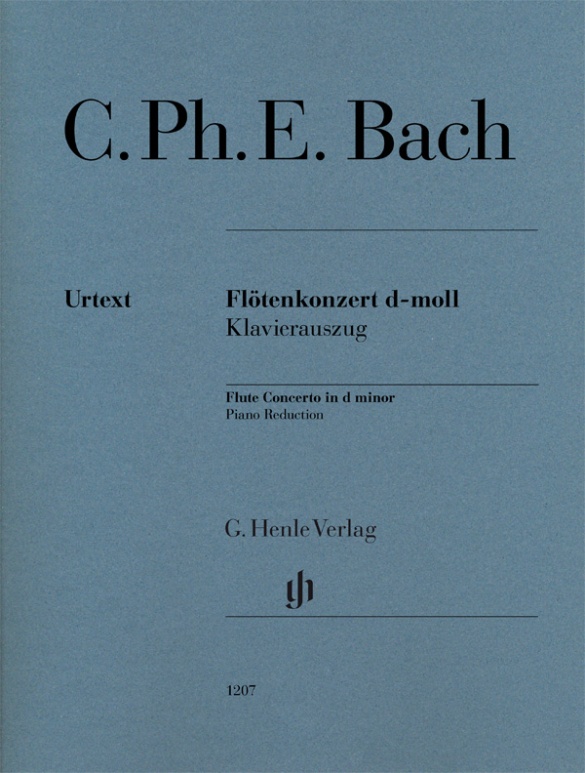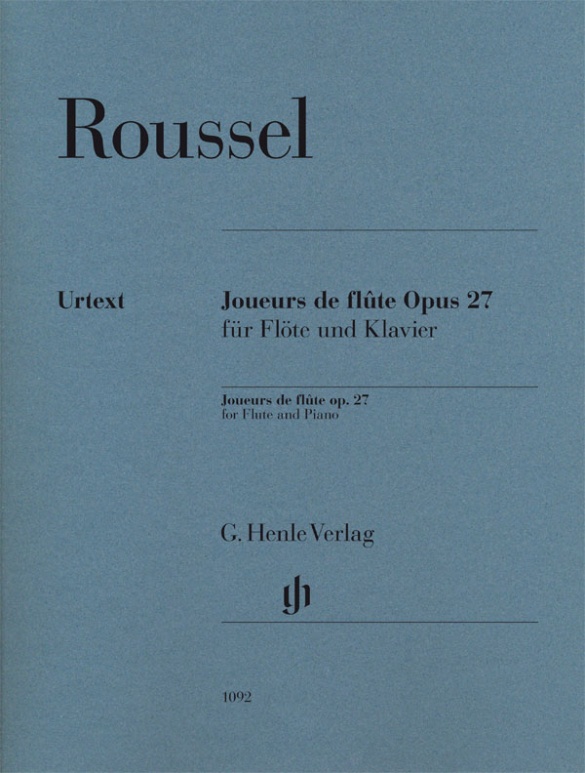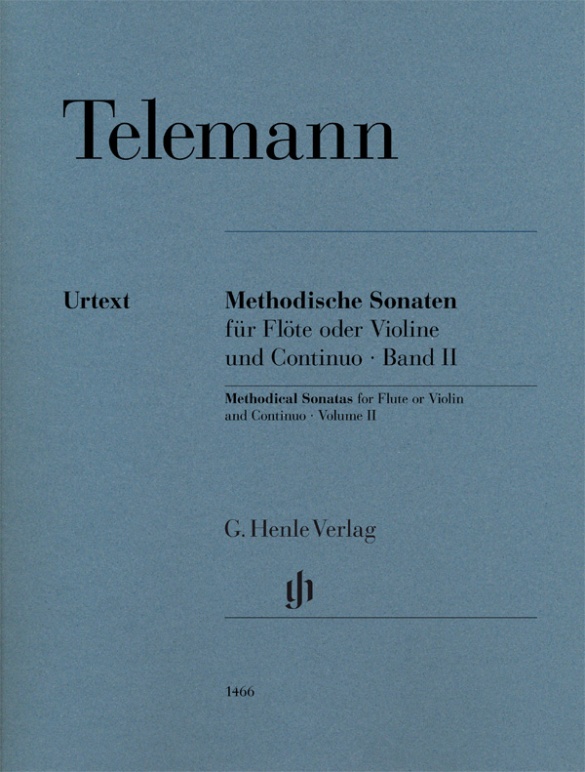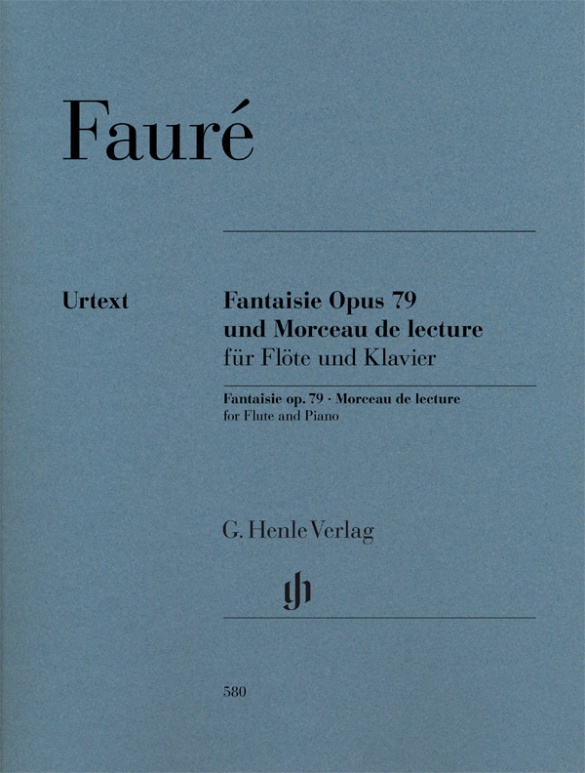

Gabriel Fauré
Fantaisie op. 79 and Morceau de lecture for Flute and Piano
Fauré’s exquisite Fantaisie is one of the jewels in chamber music for which we are indebted to his time at the Paris Conservatoire. The flute professor there, Paul Taffanel, had asked his colleague for a virtuoso examination piece. Fauré presented him with the manuscript in 1898 with the explicit indication “to modify unplayable passages” before using it in the exam. As the autograph score no longer exists, we do not know what and how much Taffanel might have changed; however, the result is a brilliant recital piece. In our edition we have added a little Adagio without opus number that Fauré also composed in 1898 for the exams at the Conservatoire as a sight-reading piece.
Content/Details
About the Composer
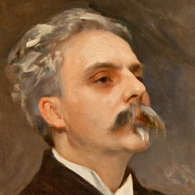
Gabriel Fauré
Representative exponent of French music around 1900. His creative work is centered around the art song, piano music (nocturnes, barcarolles, impromptus, valse-caprice), and chamber music – alongside other genres.
| 1845 | Born in Pamiers (Ariège) on May 12, the son of a primary school teacher. |
| 1854–65 | Attends the École de musique classique et religieuse (founded by L. Niedermeyer), where liturgical musicians were educated; lessons with Saint-Saëns (from 1861). |
| 1866–70 | Organist at the church of Saint-Sauveur in Rennes. |
| 1871 | After occupying various organist positions in Paris, he becomes assistant organist to Saint-Saëns at Saint-Sulpice. He numbers among the founding members of the Société nationale de musique. Performances of his works in their concerts. |
| 1874 | Premiere of his “Suite d’orchestre” in F major (“Symphony No. 1”), which is a compilation of existing pieces. |
| 1875/76 | Violin Sonata No. 1 in A major, Op. 13. |
| 1876–79 | Piano Quartet No. 1 in C minor, Op. 15 |
| 1877 | Maître de chapelle at Paris’s Église de la Madeleine. |
| 1876/78 | Premiere of his choral work “Les Djinns,” Op. 12. |
| from 1879 | Attends performances of Wagner’s music; in his own compositions he distances himself from Wagner. |
| 1885 | Premiere of his Symphony No. 2 in D minor, later destroyed. |
| 1887/88 | Requiem, Op. 48. |
| 1891 | “Cinq Mélodies ‘de Venise’,” Op. 58, on texts by Verlaine. |
| 1892–94 | “La bonne chanson,” Op. 61, on texts by Verlaine. |
| 1896 | Successor to Dubois at the Madeleine. He conducts a composition class at the Paris Conservatoire. |
| 1900 | Premiere of the tragédie lyrique “Prométhée,” Op. 82. |
| 1905–20 | Director of the Conservatoire. |
| 1909 | President of the Société musicale indépendante. |
| 1913 | Premiere in Monte Carlo of his opera “Pénélope.” |
| 1919 | Song cycle, “Mirages,” Op. 113, with clear features of his modernist late style. |
| 1924 | Death in Paris on November 4. |
About the Authors
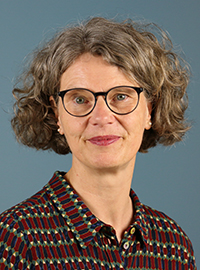
Annette Oppermann (Editor)
Dr. Annette Oppermann, born in 1965, trained as a music dealer in Frankfurt am Main and studied historical and systematic musicology as well as modern German literature at Hamburg University.
From 1993 to 1996 she worked as an editor for Sony Classical International in Hamburg; from 1996 to 1999 she was a doctoral candidate in the postgraduate programme Textkritik at the Ludwig-Maximilians-Universität in Munich, in January 2000 she earned her doctorate with a dissertation on “Musikalische Klassikerausgaben” (Hans-Joachim Marx, Hamburg). From 2000 to 2008 she worked as a research associate at the Joseph Haydn-Institut in Cologne, and was editor of the Oratorio “Die Schöpfung” in the Complete Edition of Joseph Haydn’s Works. Since February 2008 she has been an editor at G. Henle Publishers in Munich, with a particular focus on vocal music, chamber music and books.

Klaus Schilde (Fingering)
Prof. Klaus Schilde, born in 1926, spent his childhood in Dresden. There he was greatly influenced by Walter Engel, who taught him the piano (Kodaly method), composition and violin. From 1946–1948 he studied at the music conservatory in Leipzig with Hugo Steurer. After moving to the west in 1952 he studied with Walter Gieseking and Edwin Fischer, as well as with Marguerite Long, Lucette Descaves and Nadia Boulanger in Paris.
Schilde won numerous prizes. From 1947 onwards he gave concerts as a soloist and chamber musician on almost every single continent with renowned orchestras. He taught at the music conservatories in East Berlin Detmold, West Berlin, Munich, Tokyo (Geidai) and Weimar. From 1988–1991 he was President of the Staatliche Hochschule für Musik und Theater in Munich, where he also taught for decades as a professor. There are numerous radio and television broadcasts with Klaus Schilde as well as CD recordings. Schilde has contributed fingerings to almost 100 Henle Urtext editions.
Prof. Klaus Schilde passed away on 10 December, 2020.
Product Safety Informations (GPSR)

G. Henle Verlag
Here you can find the information about the manufacturer of the product.G. Henle Verlag e.K.
Forstenrieder Allee 122
81476 München
Germany
info@henle.de
www.henle.com
Flötist/inn/en und ihre Begleiter/innen dürfen sich deshalb über diese Henle-Neuausgabe auf chamoisfarbenem Papier mit dem bekannten blaugrauen Einband freuen: Sie ist - ich bin geneigt »natürlich wieder« zu sagen - vorbildlich klar und übersichtlich gesetzt, mit Rücksichtnahme auf günstige Seitenwendestellen. Und sie enthält als weitere Komposition ein kleines Morceau de lecture, also ein Blattlesestück, ebenfalls - wie die Fantaisie - für den »Concours de flûte« am Pariser Conservatoire komponiert.
Das Liebhaberorchester, 2018Inutile de vous présenter la Fantaisie Op 79, un des classiques du répertoire (...) Chez Henle Verlag, elle est couplée avec le morceau de lecture publié dans sa version originale (19 mesures), la préface d'Annette Oppermann précise remarquablement les circonstances de la naissance de ces deux oeuvres que les huit élèves de Paul Taffanel au conservatoire de Paris durent exécuter le 28 Juillet 1898 au concours annuel.
Traversières, 2017Das Autograph der Fantaisie ist leider verschollen. Für die neue Urtext-Ausgabe stand deshalb als Quelle nur die Erstausgabe zur Verfügung. Die darin enthaltenen Druckfehler und Ungenauigkeiten wurden jedoch von der Herausgeberin sorgfältig korrigiert und detailliert aufgelistet. Schon allein deshalb lohnt sich die Anschaffung der neuen Urtextausgabe, selbst für Besitzer einer der älteren Editionen. Ein weiteres Argument für den Kauf der vorliegenden Neuausgabe ist das Morceau de lecture, das quasi als Zugabe in die Ausgabe aufgenommen wurde.
Tibia, 2016recommendations
autogenerated_cross_selling
Further editions of this title
Further editions of this title


